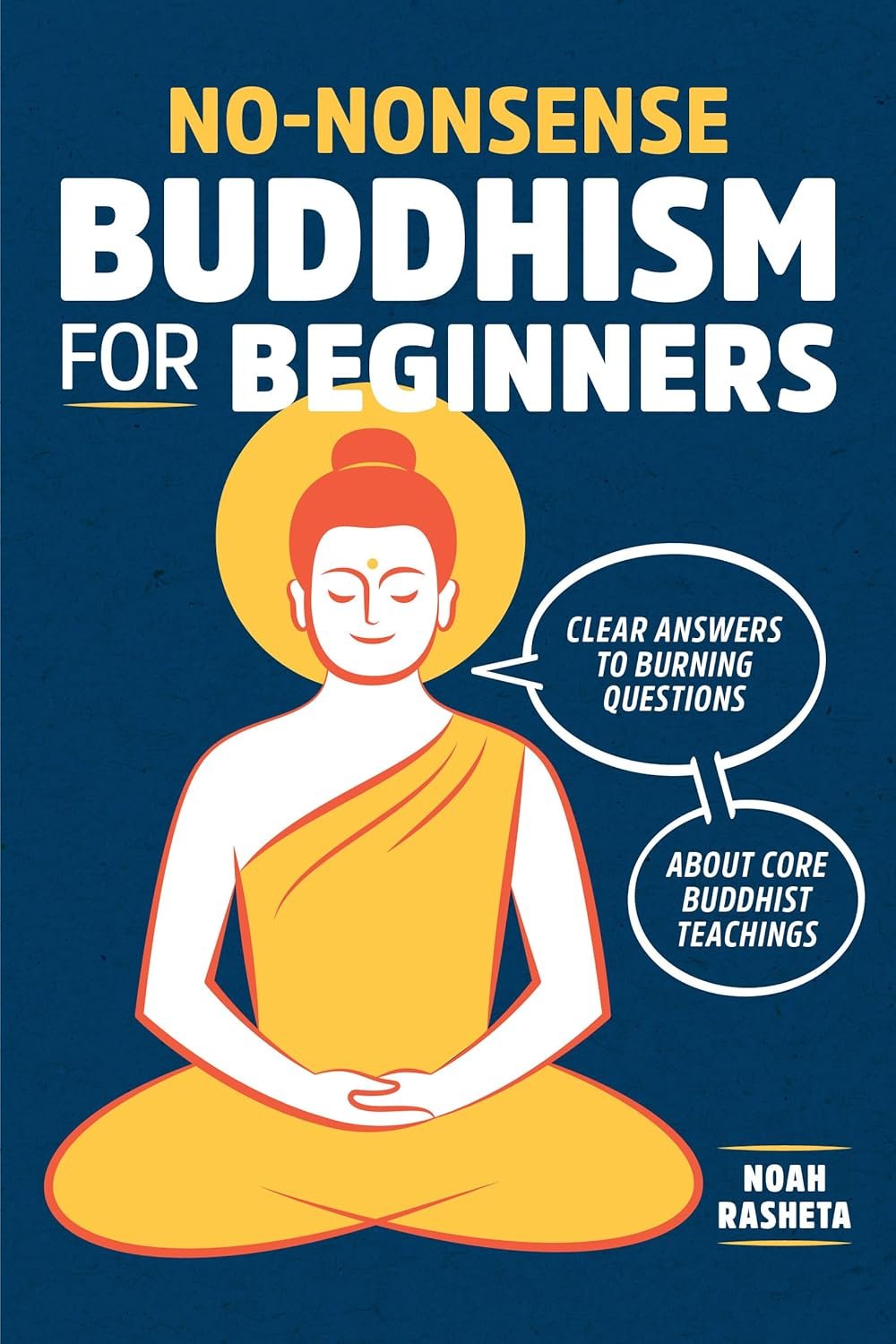







Price: $12.99 - $8.39
(as of Sep 23, 2024 16:24:33 UTC – Details)
Get on the path to Zen bliss―the essential beginner’s guide to Buddhism
How is an awakening different from enlightenment? Can agnostics and atheists be Buddhist? What are you supposed to think about during meditation? In No-Nonsense Buddhism for Beginners, author Noah Rasheta―renowned Buddhism teacher and host of the popular Secular Buddhism podcast―delivers an easily accessible introduction to the teachings of Buddhism that anyone can dive into! Inside, you’ll discover the basics of Buddhism and how to apply the philosophies in your everyday life.
A 4-part overview―Learn the fundamentals with chapters about the Buddha, key Buddhist concepts, the Buddha’s teachings, and current Buddhist practices.
Straightforward Q&As―Simplify the key concepts of Buddhism, like mindfulness, Zen, and why Buddhism is so has been around so long, into easy-to-understand ideas.
“Everyday Buddhism” Sidebars―Make Buddhism less abstract with quick callouts throughout the book that offer down-to-earth examples of Buddhism that are all around you.
Presented in a simple, conversational style, this friendly spiritual book provides the groundwork for building (or continuing) your own Buddhist practice.
From the Publisher




Do Buddhists worship the Buddha?
The Buddha was a teacher, not a god. When you see Buddhists bowing to statues or images of the Buddha, they’re not necessarily worshipping him but rather making a physical expression of their humble intent to follow the Buddha’s teachings in order to overcome an ego-centered life. In fact, in one Buddhist scripture, the Buddha seems to be critical of god worship, telling a young man that it’s far more important to live ethically than it is to worship anything. Over time, though, the various schools of Buddhism have come to view the Buddha in different ways; some almost seem to deify and worship him, while others simply hold him in the highest esteem and treat him as the ultimate teacher.


Is ignorance really a poison? What’s wrong with not knowing things?
From the Buddhist perspective, calling ignorance a poison is specifically referring to a lack of understanding about the nature of reality. So, for example, when we perceive things to be permanent and independent from other things, this blinds us from seeing things as they truly are: impermanent and interdependent. This misconception fuels our suffering. The most dangerous manifestation of ignorance is the belief in a permanent self that exists independent of other people and the rest of the world. Clinging to this false, or ignorant, sense of self and wanting to protect it give rise to greed and hatred. Ignorance is a poison because it prevents us from seeing things as they are, which is necessary to reach enlightenment. The antidote to ignorance is wisdom about the nature of both reality and the self.


What does it mean to have right intent?
If we want to reduce suffering, we need to be aware of the intentions we have regarding the things we say and do. When our intentions stem from anger or hatred, they’re more likely to cause harm than if they stem from happiness or gratitude. When we behave reactively, it is very difficult to be mindful of the intent behind our words and actions. It takes practice to become aware of our intentions. You can start this practice by asking yourself, ‘Why?’ as you react to things in life. When I’m feeling anger, for example, I like to ask myself, ‘Why am I experiencing this emotion?’ If I’m being kind to someone, I ask myself, ‘Why? Is it because I genuinely care about this person, or am I trying to gain something out of this interaction?’


Do I have to be vegetarian to be Buddhist? (Don’t make me give up meat!)
Some Buddhists are vegetarians, and some are not. Again, there’s nothing mandatory to do or refrain from doing in order to be a Buddhist. The Buddha did not require his followers to be vegetarians; while he taught that killing was an unskillful practice, he also encouraged monks to graciously accept whatever food was offered to them, including meat. Some schools of Buddhism encourage and practice a vegetarian diet as a way to follow the first precept, but others don’t. In the end, it’s a personal choice, and each person must decide if vegetarianism is suitable for his or her particular circumstances in life.
ASIN : 1641520477
Publisher : Callisto (May 15, 2018)
Language : English
Paperback : 148 pages
ISBN-10 : 9781641520478
ISBN-13 : 978-1641520478
Item Weight : 2.31 pounds
Dimensions : 5.5 x 0.36 x 8.25 inches
Customers say
Customers find the book very informative, saying it serves as a great introduction to Buddhism. They say the author does an outstanding job of conveying key core concepts without dogma. Readers describe the book as concise, clear, and simple. They also say it’s a beautiful, well-written, and interesting read that leaves them wanting to learn more.
AI-generated from the text of customer reviews


